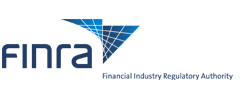
Nancy Condon (202) 728-8379
Michelle Ong (202) 728-8464
FINRA Fines Santander Securities $2 Million for Deficiencies in Its Structured Product Business and Unsuitable Reverse Convertible Sales
Firm Reimburses Customers More Than $7 Million for Reverse Convertible Losses
WASHINGTON — The Financial Industry Regulatory Authority (FINRA) announced today that it has fined Santander Securities of Puerto Rico $2 million for deficiencies in its structured product business, including unsuitable sales of reverse convertible securities to retail customers, inadequate supervision of sales of structured products, inadequate supervision of accounts funded with loans from its affiliated bank, and other violations related to the offering and sale of structured products. In addition to paying the fine, the firm is required to review its training, supervision and written procedures in the relevant areas. Santander Securities has reimbursed more than $7 million to its customers for losses that resulted from reverse convertible securities.
Brad Bennett, FINRA Executive Vice President and Chief of Enforcement, said "Santander Securities failed its customers through significant deficiencies in its systems and procedures, which allowed unsuitable recommendations of concentrated positions in risky reverse convertibles — sometimes using funds that the firm helped customers borrow — to proceed without detection or review."
Structured products are securities derived from or based on a single security, a group of securities, an index, a commodity, a debt issuance and/or foreign currency. Structured products may differ on principal protection offered, interest or coupon rates paid, and frequently cap or limit the upside participation in the underlying asset. Reverse convertibles, which are a type of structured product, are interest bearing notes in which principal repayment is linked to the performance of a reference asset — often a stock, a basket of stock or an index.
Despite Santander Securities' growing sales in structured products, between September 2007 and September 2008, brokers bore the responsibility of evaluating the products without sufficient suitability guidance or required training on structured products. The firm also had no process in place for reviewing or approving any particular structured product prior to offering the product to a customer. Moreover, the firm did not have effective procedures in place to monitor customer accounts for potentially unsuitable purchases of structured products and had no suitability policies governing product concentration. As a result, the firm failed to detect certain accounts with concentrated positions in certain risky structured products, specifically reverse convertibles. This led to unsuitable recommendations of structured products and significant losses by customers.
For example, in November 2007, Santander Securities recommended that a retired couple in their 80s, with a moderate risk tolerance and a long-term growth objective, invest in a single reverse convertible position of over $100,000, which represented 85 percent of their account value and more than half of their liquid net worth. The investment ultimately resulted in a loss of over $88,000. In another instance, in November 2007, Santander recommended that a 36-year-old with no investment experience, moderate risk tolerance and a long-term growth objective, invest in a single $95,000 reverse convertible position. This position represented most of the account value and resulted in a loss of approximately $80,000. These concentrated positions exposed customers to a risk of loss that greatly exceeded their risk tolerance and were inconsistent with their investment objectives. These customers are among those who the firm has since made whole.
Moreover, some Santander Securities brokers recommended that customers use funds borrowed from the firm's banking affiliate to purchase reverse convertibles, claiming that it would enable the customers to capture the spread between the interest they paid to the bank and the higher coupon rate they received from the reverse convertible. However, these recommendations substantially increased the clients' exposures to risk. Many customers lost money and owed additional money to the bank when the value of the reverse convertible declined and the bank sold the product at a loss. Santander failed to have adequate supervisory procedures in place to monitor customers' accounts pledged as collateral for these loans.
In concluding this settlement, Santander Securities neither admitted nor denied the charges, but consented to the entry of FINRA's findings.
This investigation was conducted by Samantha Joseph, Kathryn Wilson and Julie Glynn of the Enforcement Department, under the supervision of Linda Walters, Director, and David Jaffe, Regional Chief Counsel.
Investors can obtain more information about, and the disciplinary record of, any FINRA-registered broker or brokerage firm by using FINRA's BrokerCheck. FINRA makes BrokerCheck available at no charge. In 2010, members of the public used this service to conduct 17.2 million reviews of broker or firm records. Investors can access BrokerCheck at www.finra.org/brokercheck or by calling (800) 289-9999.
FINRA is the largest independent regulator for all securities firms doing business in the United States. FINRA is dedicated to investor protection and market integrity through effective and efficient regulation and complementary compliance and technology-based services. FINRA touches virtually every aspect of the securities business – from registering and educating industry participants to examining securities firms, writing rules, enforcing those rules and the federal securities laws, informing and educating the investing public, providing trade reporting and other industry utilities, and administering the largest dispute resolution forum for investors and registered firms. For more information, please visit www.finra.org.
